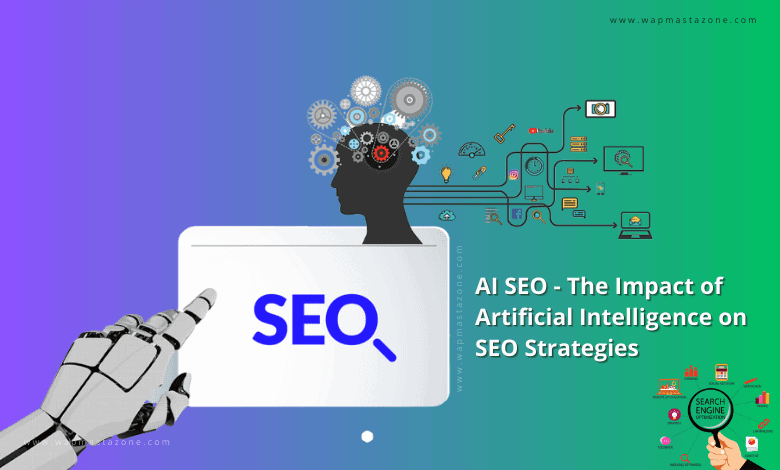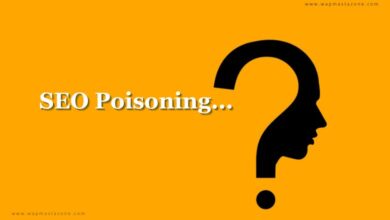AI SEO – The Impact of Artificial Intelligence on SEO Strategies
AI SEO, AI for SEO, Artificial Intelligence for SEO

In this article, you will learn about AI SEO and the impact of artificial intelligence on SEO Strategies and what it means for businesses and business owners. Search engine optimization (SEO) has been a critical aspect of digital marketing for years. It is the process of optimizing a website or content to rank higher in search engine results pages (SERPs) for relevant keywords. However, SEO strategies are constantly evolving due to advancements in technology, and one of the most significant developments in recent years is the rise of artificial intelligence (AI).
Also read: SEO for Beginners – Ultimate Guide
Suggested read: What is SEO?
What is Artificial Intelligence (AI)?
AI refers to the ability of machines to perform tasks that would typically require human intelligence, such as perception, reasoning, and learning. AI can be divided into two main categories:
- narrow or weak AI and
- general or strong AI.
Narrow or weak AI is designed to perform specific tasks and is the most commonly used form of AI in the industry. Examples of narrow AI include speech recognition, image recognition, and recommendation systems.
General or strong AI, on the other hand, refers to machines that can perform any intellectual task that a human can. However, we are still far from achieving this type of AI, and it remains mostly theoretical.
How AI is Changing SEO Strategies
The rise of AI has brought about significant changes in SEO strategies. Below are some of the key ways AI is transforming the SEO landscape:
1. Improved Keyword Research:
Keyword research is an essential aspect of SEO, as it helps businesses identify the most relevant and profitable keywords to target. AI-powered tools like Google’s Keyword Planner and Ahrefs’ Keyword Explorer have revolutionized the keyword research process. These tools use machine learning algorithms to analyze large volumes of data, providing businesses with valuable insights into the keywords that will drive the most traffic and conversions.
Also Read: RoadMap to Becoming An SEO Expert
Also read: 15 Top SEO Experts and Specialists
2. More Accurate Search Results:
AI has significantly improved the accuracy of search results. Google’s RankBrain, for example, is an AI-powered algorithm that helps the search engine understand the context behind search queries. This means that Google can provide more relevant results to users, even for queries it has never seen before. As a result, business owners need to focus on creating content that answers users’ questions and provides value, rather than simply optimizing for specific keywords.
3. Personalized Search Results:
AI has also enabled search engines to deliver personalized search results based on users’ search history, location, and other data. This means that businesses need to focus on creating content that is relevant to their target audience and provides a personalized experience. For example, a local business could create content that targets users in their specific location, improving the chances of appearing in personalized search results.
4. Voice Search Optimization:
Voice search is becoming increasingly popular, with more and more users using digital assistants like Amazon’s Alexa, Google Assistant, and Apple’s Siri to search for information. AI-powered voice assistants use natural language processing (NLP) to understand users’ queries, making it essential for businesses to optimize their content for voice search. This involves using conversational language, answering users’ questions directly, and optimizing for long-tail keywords.
Also read: Ultimate Guide to ON-Page SEO
Also read: Ultimate Guide to OFF-Page SEO
Suggested read: 13 Key Indications that your SEO Strategy is Successful
5. Image and Video Recognition:
AI-powered image and video recognition technology is becoming increasingly sophisticated. Google’s Cloud Vision API, for example, can analyze images to identify objects, logos, and text, making it easier for businesses to optimize their visual content for search engines. The implication is that business owners need to focus on creating high-quality visual content that is optimized for SEO, such as using descriptive alt tags and file names.
6. Enhanced User Experience:
AI for SEO has also enabled businesses to improve the user experience (UX) of their websites. Machine learning algorithms can analyze user behavior and provide insights into what users find engaging and what frustrates them. This data can then be used to optimize website design, navigation, and content to improve the overall user experience. A better user experience leads to lower bounce rates, longer visit durations, and more engagement, all of which are positive signals for search engines.
7. Automated Content Creation:
AI is also being used to automate content creation, with tools like GPT-4 generating high-quality content based on user input. While these tools are not yet perfect, they can significantly reduce the time and effort required to create content, enabling business owners to publish more content and stay ahead of other competitors.
Also read: Google Indexing and How Web Crawler Works
Suggested read: 7 Proven Steps To Grow Your Domain Authority
Challenges and Limitations of AI in SEO
While AI for SEO has many benefits, there are also challenges and limitations to consider. Below are some of the main issues:
1. Lack of Control:
One of the main challenges of AI SEO is the lack of control businesses have over the algorithms used by search engines. AI algorithms are often opaque, meaning that businesses cannot see how they work or influence their behavior. This can make it difficult to optimize for specific search queries or understand why certain pages are ranking higher than others.
2. Bias:
AI algorithms can also be biased, reflecting the biases of their creators or the data they are trained on. This can lead to unfair or inaccurate search results, which can harm businesses and users alike. For example, AI-powered hiring algorithms have been found to be biased against women and people of color, highlighting the potential dangers of unchecked AI.
Also read: SEO Auditing & How to Conduct an SEO Audit for a Website
4. Privacy Concerns:
AI SEO – AI-powered SEO can also raise privacy concerns, as search engines collect and analyze vast amounts of data about users. While this data is typically anonymized, there is always a risk of data breaches or misuse. As such, business owners need to be transparent about how they collect and use data, and ensure that they comply with relevant privacy laws and regulations.
4. Cost:
AI-powered SEO can be expensive, as businesses need to invest in AI-powered tools and services to stay ahead of the competition. While AI can provide significant benefits, it is not a silver bullet, and business owners need to carefully evaluate the costs and benefits of AI-powered SEO before investing in it.
Also read: 7 Most Common SEO Mistakes you Should Avoid
Recommended: Web and SEO Tools
| Free Web & Seotools | Categories | Websites |
|---|---|---|
| Web/Seotools | https://www.my-seotools.com/ | |
| IP/Domaintools | https://www.domainlista.com/ | |
| Webtools/Domaintools | https://webtools.domainlista.com/ | |
| Webtools | https://dnschecker.me/ | |
| Web tools/IP Address Checker | https://www.readmyip.com | |
| Seotools | https://seoanalyzer.wapmastazone.com/ | |
| Web/Seotools | https://seotools.wapmastazone.com/ | |
| Seotools | https://siteworth.wapmastazone.com/ | |
| Web/Seotools | https://www.spysuggest.com/ | |
| Webtools/Qr Generator | https://qr-codegenerator.me/ | |
| Seotools | https://seooptimizer.me/ |



